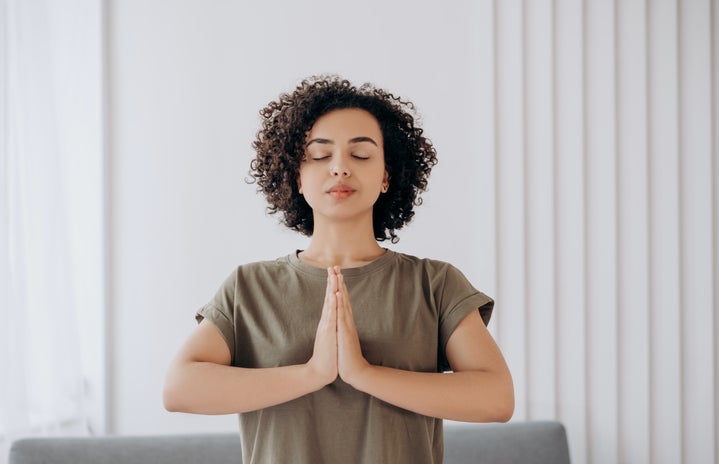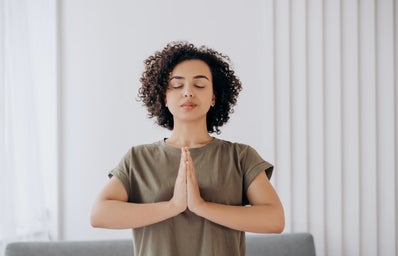The announcement has arrived, and it’s the news we’ve all been waiting for. Boris Johnson’s lockdown strategy for England was announced on 22nd February, giving hope to the nation as he outlined the vital steps in easing restrictions, leading to a drop off of all social contact rules by 21st June. Just to recap on his main dates if anyone was unclear: schools will reopen from 8th March; two households can meet outside from 29th March; non-essential shops, outdoor pubs, hairdressers and gyms will open from April 12th, and theoretically our old ways of life are expected to ‘resume’ from 21st June if all goes well.
With this news can come a range of emotions for all of us. I, for one, felt a simultaneous burst of hope and exuberance along with feelings of pure anxiety and fear about the easing of lockdown, coupled with serious lockdown burn-out. The final stretch and last months of hurdles can seem like a mountain to overcome, with April, May and June feeling years away. It can feel extremely deflating living ‘Groundhog Day’ 7 days a week, 24 hours a day, with the assured knowledge now that we can’t even grab an outdoor alcoholic beverage with a friend, or plan a picnic with the nice weather coming in, for yet another month’s time. It can be frustrating, watching what is supposed to be the ‘best years of our lives’ fly by, in isolation and missing friends, family, and important celebrations with loved ones. We all feel the effects of not having a proper break from working from home, or simply missing having something to look forward to.
It is so important in these final few months, when things can feel especially tough, to try and maintain a healthy balance of work and rest, along with mindfulness techniques to encourage us to stay as sane as possible. So, if you’re really feeling dispirited and hitting a brick wall in this home stretch, struggling to motivate yourself or feeling incessantly bored, without further ado here are some tips to help time fly and to help you enjoy yourself before our hectic, jam-packed, busy, ‘normal’ lives resume.

Find excitement in the little things
I recently asked my flatmate how she stays positive every day under the current circumstances, and she gave me some invaluable advice: find excitement in everyday things. Get excited for that swig of morning coffee. Be thrilled to plan your exercise routine. Think about what amazing cuisine you’ll cook up for dinner. Get excited for your grocery shop and allow yourself a treat, like some evening snacks for your Netflix movie. Maybe even order an ASOS package. It’s so important to have a positive mindset and find contentment in our daily tasks, as this is half the battle. If we find happiness in our usual routines and look forward to certain things outside of work and studying, like cooking and exercise, it can really change how we feel about ourselves and our lives in general. So stay positive folks!

Meditate
I cannot recommend meditating enough. It is an excellent way of changing your mindset and achieving better focus and concentration levels. It can also improve self-awareness and self-esteem, lower levels of stress and anxiety and help establish more kindness and compassion in your life. Meditating a few times a week can drastically change how you perceive yourself, as well as the situation we find ourselves in. Spotify, Apple Podcasts and YouTube (to name but a few platforms) all have excellent meditation videos and sounds for all age groups and genders, both guided and unguided for your preference. Why not try it out and see? If you wake up and put on a meditation podcast whilst doing some morning stretches, or last thing at night relaxing in bed, trust me, it will really change the quality of your day.

Start a new exercise routine
Exercising is very important to maintain physical and mental health, but it can be really hard to motivate ourselves in the final months of lockdown. If a restriction-free summer isn’t motivation enough to get that summer bod, try spicing up your exercise routine to make it interesting. With nicer weather on the cards, it might be fun to try some yoga, walking, running or other forms of cardiovascular exercise. Outdoor gyms in parks can be an excellent way of staying fit without needing to buy your own gym equipment. Also, scroll around on YouTube for some new ideas for exercise, like a 30-minute HIIT session or a dance exercise video. It can actually be overwhelming the number of different types of home workouts that are out there to explore!
Go for daily walks
One thing that has saved me during numerous lockdowns has been regular walking and running. A daily walk (it doesn’t have to be a long one) can really refocus your mind, and it seriously helps to get outside instead of looking at the same four walls every hour of the day. If you find your day is too busy to go for an afternoon walk, why not get up early for a morning walk and grab a coffee to go, or go for a chilled evening walk after work and before dinner. Fitting in a walk at any point will not be a waste of time, and can help to quell feelings of claustrophobia, boredom and burnout, as well as upping your step count and helping your lungs get some lovely fresh air.
Journal
Writing things down can be a very healthy way of dealing with emotions that have emerged from more months of isolation and lockdown. It’s especially useful when we might have fewer people to talk to than usual about how we think and feel every day. To start, it might be a good idea to order yourself a nice, pretty notebook and start jotting down how you feel on a day-to-day basis. This could be what you did and ate that day. Alternatively, you could start making lists of things you want to accomplish this year or you could even just doodle things. Your journal can be whatever you want it to be; there is no linear way to journal, but it’s a terrific technique to help process some of the more uncomfortable emotions associated with our current way of life. This is just for you – no one else needs to see it, so use it to your full advantage.

Learn a new talent
Lockdown has been boredom central, so learning a new talent could be a great way to revitalise your daily schedule. Put it this way – we may never have as much free time ever again to invest in ourselves, so in the last few months why not finally learn to do that thing that you’ve been putting off for a while? Test out new cooking recipes, learn a new instrument, buy some baking equipment from Tesco, start drawing and painting or start learning dance routines on YouTube. These are some fantastic ways to speed up the long isolated hours of the day and truly invest in yourself in some way. What’s more, it will serve well as a new and interesting post-Covid conversation starter and, even better, a great thing to stick on a CV!
Stay in touch
Make sure you keep in touch with those you love, especially if you live alone, if you don’t see or interact with many people in the day or if you know of someone who is going through a tough time. FaceTime, video calls, Zoom quizzes and virtual drinks have all been vital for us to keep connected. Reach out if you feel you need to talk to someone, give your parents a quick lunch time call or drop a text to a near-by friend to go on a socially distanced walk together. It really can change your mood for the rest of the day, and it leads to better productivity if you see or hear from a fresh face. Make sure you reach out to your loved ones to check that they are coping. Remember, this situation isn’t natural for anyone and you never know who is struggling and needs a chat to get things off their chest. Let this serve as a friendly reminder that mental health is just as important as physical health. If you find yourself in this situation, or do not have many people to speak to, here are some numbers you can try:
Mind: 02082152243
Samaritans: 116123
CALM: 0800585858
Limit Social Media time
Don’t get me wrong – social media is absolutely excellent for staying in touch with friends and family during lockdown, but getting addicted to our screens is becoming a real issue. If, like me, your weekly screen time announcement is getting a bit scarier every week, it might be time to start thinking about how much time you spend scrolling through social media. Even just deleting the app from your phone (you don’t necessarily have to go to the lengths of deactivating your accounts) can encourage you to start spending more time in the moment, or doing something different in your day rather than wasting time mindlessly staring at a screen. If scheduling is your thing, you might want to allocate yourself set times to check your insta feed and invest more time in the day to dedicate to other, more productive, activities. For example, instead of using your 30-minute afternoon break lying on your bed looking at TikTok, why not go for a 30-minute walk instead to clear your head, accompanied by some decent tunes or a podcast and reward yourself with a takeaway coffee on your way back. It might also be beneficial to keep news notifications to a minimum, as this might be fuelling any Covid anxiety.

Forgive yourself
This past year has been tough with a capital T. Give yourself some credit. You have gone through the worst pandemic the world has seen in 100 years, with 3 national lockdowns, lasting 6 months in total. Don’t be hard on yourself for feelings of boredom, burnout, lack of productivity, weight gain, muscle loss or losing interest in things you once loved. These are all natural feelings, feelings that are unanimous among the entire British population. You definitely need days that are unproductive – everyone needs a break every once in a while. If you don’t want to be productive on a certain day, forgive yourself. Allow it. So what if you want to curl up with a Domino’s and binge-watch Netflix all day? If this isn’t a regular occurrence, then allow yourself one to two days off a week for ‘me’ time, which can be totally unproductive. Give yourself time to laze about and enjoy duvet-days, with the thought of how great our weekends will become in beer gardens in the summer months growing ever closer.






